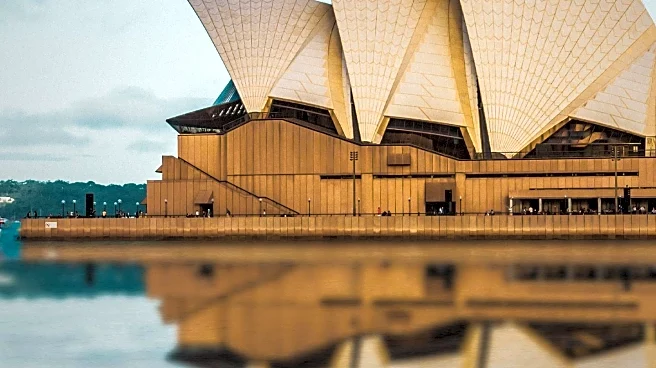What's Happening?
Luxury travel habits among wealthy Australians are undergoing significant changes, as revealed by Virtuoso's 2026 Luxe Report. Japan has emerged as the top destination for Australian and New Zealand travelers, surpassing Italy. The report, based on insights from over 2,400 travel advisors, indicates a growing preference for destinations that offer cultural depth and ease of movement. Antarctica has been identified as the top 'destination on the rise,' reflecting increased interest in expedition cruising and remote experiences. Other destinations gaining attention include Sri Lanka, Norway, Vietnam, and Egypt. Australians are increasingly avoiding over-touristed locations, prioritizing sustainability in their travel choices. The report also notes a shift towards longer, slower itineraries, with a focus on food and wine experiences over fast sightseeing.
Why It's Important?
The shift in luxury travel preferences among Australians highlights broader trends in the travel industry, emphasizing unique and culturally rich experiences over traditional destinations. This change could impact global tourism markets, as destinations like Japan and Antarctica see increased demand. The focus on sustainability and avoiding over-touristed areas reflects a growing awareness of environmental impacts, potentially influencing travel policies and industry practices. The rise in targeted luxury spending, including private buyouts and ultraluxe packages, suggests a shift towards personalized and high-value travel experiences. This trend may benefit destinations that offer exclusivity and privacy, while traditional hotspots may experience a decline in affluent travelers.
What's Next?
As Australians continue to prioritize unique and sustainable travel experiences, destinations that offer cultural depth and exclusivity are likely to see increased interest. Travel advisors and industry stakeholders may need to adapt their offerings to cater to these evolving preferences, focusing on personalized itineraries and sustainable practices. The emphasis on longer, slower travel experiences could lead to changes in how travel packages are structured, with a focus on quality over quantity. Additionally, the growing demand for expedition cruising and remote experiences may drive investment in infrastructure and services that support these types of travel.
Beyond the Headlines
The shift towards unique and sustainable travel experiences among Australians may have broader implications for the global travel industry. As affluent travelers seek out less crowded and culturally rich destinations, there could be a push for stricter visitor caps and sustainable tourism practices. This trend may also influence cultural exchanges, as travelers engage more deeply with local communities and traditions. The focus on wellness and structured health experiences across generations suggests a long-term shift towards travel that supports physical and mental well-being, potentially impacting how travel services are marketed and delivered.










